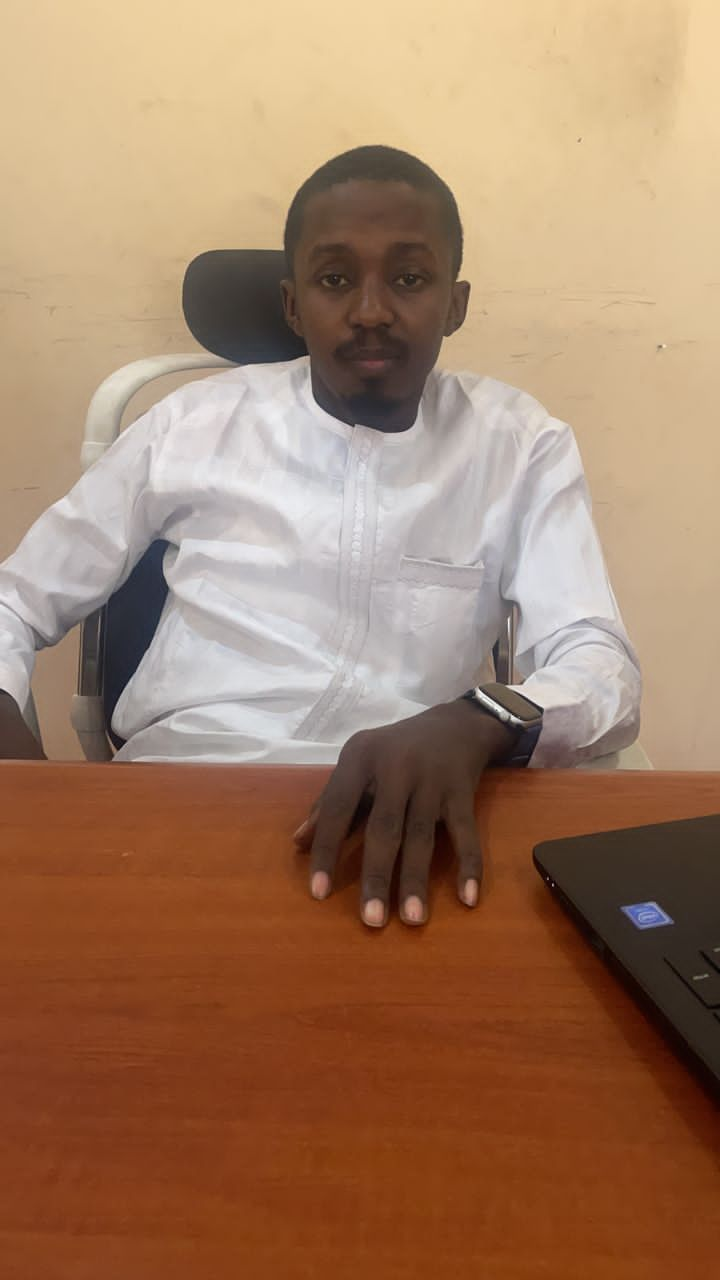Yusuf Hayatudeen, 30, is a young passionate inventor and entrepreneur who developed softwares to fight crimes and generate revenue in 5 states. The last child in a family of 5, he had both primary and secondary school education at Elkanemi Islamic Primary School and Elkanemi College of Islamic Theology before proceeding to study Information Management Technology at the Sikkim Manipal University of Ghana. Yusuf is currently the Chief Executive Officer of Bexil Computer and Solution limited Maiduguri. Excerpts
What did you specialise in?
We specialize in providing solutions to some critical challenges facing the society. Growing up in Maiduguri, I always thought of what could be done to improve my state; looking at the unemployment rate of the youth, poverty levels and insecurity. It used to be of great concern to me, so after the one-year mandatory NYSC, I did a lot of research, which led to the development of some applications that can reduce insecurity if put into proper use with the help of artificial intelligence.
What informed your decision to develop these apps?
I have always been an ICT enthusiast. In 2014, I developed an app to help improve security, especially within Maiduguri. In the heat of insurgency, I and some of my friends tried to decipher the cause of the problems we were facing in Borno and the North-east, and answer to our quest was the issue of Okada riders then. There was a time the government ordered that they must wear helmet in the state capital but this order led to an uproar. That was part of the beginning of Boko Haram insurgency. The people and security agencies clashed around Custom area because of the refusal of the people to obey government’s orders. This was part of what culminated to the national security issues we are facing today.
So, we felt if the tricycle operators are not sanitised, another bigger Boko Haram is looming because a lot of crimes are being perpetrated in Borno State, especially at night, using Keke Napep.
- Tackling menace of thuggery among youths
- Katsina gov’ship: Chances, weaknesses of APC, PDP, LP, NNPP candidates
We no longer have Okada since the Keke Napep have replaced them, so why not create a software that will enable the government have the data of all operators and create solutions and innovations that would help curb the crimes and generate revenue?
Bearing in mind that many of the Keke Napep operators are illiterate, how would this be possible?
First of all, the recklessness of the operators calls for concern. If you were in Maiduguri four years ago, before we started the innovation, the crimes reported daily would shock you. Because there was no proper identity management or number plates, they behaved anyhow. The number on the body of the tricycle was not visible enough for people to identify them.
There was no centralized data or information on the operators so they could commit a crime, and just go ahead and erase the number on the tricycle and put another one. At that time, you could see multiple Keke with the same number.
What we did was to first collate all their information and then number the tricycles. After numbering, we made it impossible for anyone to use his Keke Napep without QR code placed on the tricycles.
Was there any resistance from the association at first?
All you had to do was come to the Borno Traffic Management Agency (BORTMAN) with that number so it can be easily traced to the original owner of the Keke. Within three to six months, the crimes reduced and people started seeing the impact of the initiative. After realizing that they couldn’t commit crimes and go free, those criminal elements stopped because there was no escape route for them. You can go the Police Headquarters in Maiduguri to verify this fact. Our apps have helped reduce the crimes perpetrated by Keke Napep operators.
We are the first company in Nigeria to invent this app; we have not seen it any where else in the country.
However, we have replicated it in four states.
Tell us more about the features and benefits of this app?
Apart from fighting crimes in our society, it has improved job creation. In Keke Napep associations alone, I think more than 1,000 people have benefited directly. We have registered at least 25,000 tricycles in Borno State. People come to register their tricycles and checks are being conducted by the association before they could be integrated into our system. Also, revenues are collected digitally.
As you know, identity is very important when it comes to profiling taxpayers, and governments are losing billions of naira in that sector. If the government can identify the taxpayers, it would be easy for governments to know if someone is paying tax or defaulting. So, with this app, the operators have their unique identities and the electronic machine would reveal the data of every operator. There is no way to default at all. It has worked perfectly and you can go to the Board of Internal Revenue to verify.
We generate between N600 and N700 million annually from Keke Napep alone since the inception of this software. Before, it was a zero-revenue sector for the state government.
What prospects did you have in this initiative?
We have provided services for the Gombe State government. As we speak, we have about 17,000 registered tricycles/Okada. We are also in Niger, Katsina and Nasarawa states. Governments, at all levels, need to think of using artificial intelligence to curtail crimes. As I said, we just want to collect data from the public and the data can be used to improve the security ravaging our country; you can use the data to track down criminals. Using the system that has data of people who are operators in this sector would help the security agencies to arrest any criminals because their photographs and bio data have been captured. Security agencies can use artificial intelligence for their brief, study, analysis and profiling of suspects. The prospect of this initiative is huge, if the government can invest in it massively, it would reduce crimes and generate more revenue for the treasury.
In what ways do you think artificial intelligence can help curb insurgency?
Artificial Intelligence has the capacity of learning beyond human thinking, it is very difficult for us to create patterns, but it is easy for artificial intelligence to do so. For instance, if we have CCTV cameras in the state without their data, it would not solve the problem, but when their data is integrated, AI will help to facilitate the arrest of the criminal.
When you go to advanced countries, they only identify you through facial recognition, so governments need to get data to reduce crimes through big data. Also, government can index databases in police stations, hospitals, schools, correctional centres and other public places and people should be indexed by facial recognition so AI will track the movement of criminals and it would be curtailed. Likewise, insurgency will disappear because there would be no hiding place for any criminal.
Another area government needs to improve is our transportation sector. For instance, if you go to a motor park, there is a document called the passengers’ manifest. Most people lie when writing their names and phone numbers. If we are serious in addressing insecurity, all that governments need to do is instal an electronic machine that would request your national identity card or voter card at motor parks across the states, and security agencies would be able to synchronise the data. Information gathering is very critical in solving security problems so, there should be a way to bring computerising to monitor and access information because criminals move from one place to another.
Looking at big data in the next 5 years, where do you think Nigeria will be?
It will create jobs and employment opportunities. We are working in five states now, and I have 70 direct staff receiving salaries from my company every month. We also have at least 300 volunteer staff that are receiving wages to ensure the system is working effectively and efficiently.
In the next 5 years, we hope to be a big company providing solutions to challenges not only in Nigeria but in Africa. Governments need to encourage and support young inventors and entrepreneurs to create jobs to address our keys enemy which is poverty, especially in the northern part of the country. We have young people with great ideas; all they need is a little push and they will come out with fantastic solutions to the problems in our region.
What are the challenges you have experienced?
One of the setbacks we faced at the beginning of the project was fear of change from our people, they thought we were coming to take over their jobs, that was a major problem we had. Even in the state government circle, a lot of people were afraid of these initiatives.
I developed this app since 2014, we started making some moves and contacting people in the government but they were afraid. It didn’t materialise until 2020 after Prof Babagana Zulum became the governor and I met with the Commissioner for Transportation, forwarded the proposals to the office of the governor and it was immediately approved by the governor.
For six years I pursued the state government to sell this initiative to them, so you can see that consistency is key. As we speak, we have a lot of software on ground that we trying to sell to people but we are not deterred by those challenges because we know it is part of what makes us stronger and brings out the best in us.

 Join Daily Trust WhatsApp Community For Quick Access To News and Happenings Around You.
Join Daily Trust WhatsApp Community For Quick Access To News and Happenings Around You.


